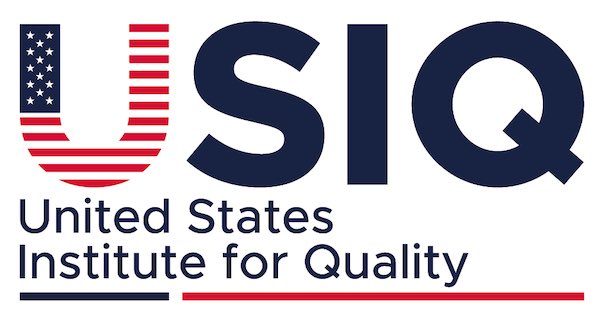|
Getting your Trinity Audio player ready...
|
Generation Y, or Millennials, were born between 1981 and 1996. This generation has been born and raised in a world of fast-paced technological development, globalization, and cultural changes that have influenced their beliefs and behaviors. They have brought new dimensions to the workplace and given new dimensions to the employment culture. Millennials are willing to work for companies whose culture is in tune with their own, where they can grow and have a good work-life balance.
A new study has found that to manage and motivate millennials in the workplace; employers must be aware of this generation’s different concerns and goals. This generation wants much more than just money; they are in search of purposeful work, work-life balance, an inclusive environment, and career advancement. The following factors are key to understanding how the millennial generation approaches the decision to select an employer, the decision to remain employed by that organization, and the changing face of the employment relationship.
1. Work-Life Balance
When it comes to the Millennials, they value work-life balance above all else. Previous generations, however, associate hard work with long hours in the workplace, which does not apply to Generation Y, who appreciates work-life balance. This generation emphasizes the following:
Flexible Working Arrangements: Millennials expect to have control over their work schedules, and flexible working arrangements like remote work, working from home, flexi-time, or working only a few days in the office have increased their satisfaction and productivity in their workplaces.
Emphasis on Well-Being: Businesses that promote wellness programs, gym memberships, or mental health facilities appeal to Millennials.
These preferences, if recognized by employers, will help Millennials feel valued and balanced in the workplace.
2. Purpose and Meaning in Work
Generation Y is not motivated only by salary; they look for their work to have a positive impact. Millennials are motivated by purpose; they put all their effort and ideas into their work. They are particularly drawn to organizations that:
Promote Social Responsibility: They prefer to work for companies engaged in social causes or those that promote sustainability, community, or charity.
Align with Personal Values: If an organization’s mission and values align with millennials’ personal values, they will be happier and more committed.
To harness this generation, employers should demonstrate their mission and help employees understand their role in the bigger picture.
3. Challenges that can be taken as Opportunities for Growth and Development
Millennials are the generation that needs to feel that they are growing in their careers. They want employers who will encourage them to grow and become better employees. Key aspects include:
Continuous Learning: Milestones include coursework, workshops, and education materials offered to the Millennial generation, who seek to learn throughout their lifetime.
Career Advancement: Generation Y needs to know where they are going and how they will get there in the workplace. The company has clear promotion policies and frequent feedback, which enhances their feeling of career growth.
Mentorship Opportunities: Industry mentors and leaders help Millennials feel more confident and prepared to progress in their careers.
Such opportunities have made Millennials more loyal to employers and lower their turnover rate.
4. Adopting Technology and Innovation: A New Normal
Millennials are the generation that has come of age in the age of technology. They anticipate that their workplaces should use contemporary technologies and encourage creativity. Key factors include:
Access to Cutting-Edge Tools: Millennials can be easily frustrated by old equipment or procedures. Offering tools and platforms of a higher level improves their productivity and satisfaction.
Support for Innovation: Millennials want to work in organizations that foster creativity and innovation. They like working in an environment that embraces the culture of change and innovation.
Employers can design workplaces that will suit the technological generation Y using technology and innovation.
5. Divergent and Non-Biased Workplaces
Culture, race, and gender are not negotiable for the Millennial generation. They appreciate organizations that embrace diversity and support the concept of equal treatment. Key elements include:
Representation: The younger generation of employees expects to find diversity throughout the organization, especially in senior positions.
Inclusive Policies: Concerns like gender equality, LGBTQ+ rights, and accessibility are still relevant in this generation, so policies concerning these issues are relevant.
Team Collaboration: Generation Y seeks places that offer a collaborative working culture and value the differences in people.
Employers who support diversity and inclusion hire Millennial employees and create a productive work environment.
6. Open Communication and Feedback
Young employees value honest and clear communication with their managers. They want to be heard and respected; when the communication is transparent, they trust the company and get involved. Key aspects include:
Regular Updates: Those organizations that inform their teams about the goals and performance standards and the organizational changes foster the feeling of being on the same page.
Constructive Feedback: The millennial needs to be critiqued frequently, and positive feedback can help them develop. Having an open-door policy and having management that is easy to approach makes people tell the truth.
Recognition of Efforts: Mentioning successes and celebrating victories makes people more inspired and confident.
Millennials want to be spoken to and listened to at the workplace, which makes them feel included, thus giving them a high level of engagement and less turnover.
7. Environmental Consciousness
This generation is very conscious of the environment and would like to work for companies that have embraced the environment. Key actions include:
Sustainability Practices: Reducing carbon footprints, minimizing waste, and adopting eco-friendly initiatives resonate with Millennials.
Green Certifications: Companies that showcase their commitment through certifications or environmentally conscious practices attract environmentally aware talent.
Employee Participation: Involving employees in sustainability efforts, such as recycling drives or tree planting, fosters a shared sense of purpose.
Thus, by focusing on the issue of environmentalism, employers will be able to appeal to the values of the Millennial generation.
Conclusion
Generation Y has changed the workplace in terms of their attitude towards work. Organizations focusing on work-life balance, work fulfillment, learning and development, technology, and inclusion will be able to manage the millennials in the workforce. In so doing, organizations can take advantage of Generation Y’s special skills and views to benefit both the organizations and the generation.
Related Articles
Recruitment marketing aims to market your organization in order to target potential employees. Rather than waiting for individuals to approach [...]
The current fast-paced job market demands essential adaptability from both workforce members and organizations. The technological changes in industries and [...]
A successful social media marketing strategy for B2B success depends on trust development while sharing valuable content that targets decision-making [...]
Every employer understands the importance of retaining their employees because this is one way through which their business can grow [...]





